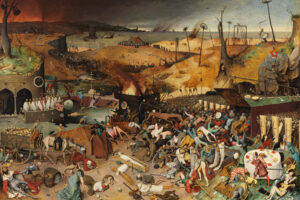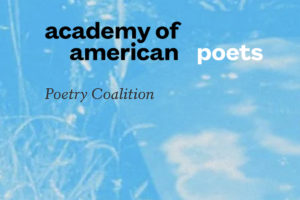
January 23, 2023
Mizna Film Series 2023: Resistant Images- Restoring, Recovering and Reimagining Palestinian Archival Film
Starting February 2023, Mizna Film Series transitions from a monthly film series to quarterly screenings. Screenings will take place exclusively in-person at the Trylon Cinema the fourth Wednesday of the months of February, May, August, and November. Learn more about the Mizna Film Series here.
The 2023 Mizna Film Series highlights archival works and initiatives that document Palestine’s struggle for liberation. With quarterly screenings at the Trylon, the series presents rare and rediscovered Palestinian films as well as works produced by international collaborators and groups in solidarity with Palestine, like the Japanese Red Army and San Francisco Newsreel.
Historically, film has been an important tool and medium of the Palestinian struggle for land and liberation. As groups like the Palestinian Liberation Organization (PLO) and the Popular Front for the Liberation of Palestine (PFLP) began organizing, filmmakers, activists, rebels, and freedom fighters explored film’s revolutionary potential, using it to spread news about the particularities of their situations while also building networks and collaborations across international lines. The 1960’s and 70’s were rife with revolutionary potential, as the world witnessed the dismantling of colonial regimes and relationships. In this milieu, film became a primary mode through which to capture the fleeting present and to document the contours of newly formed nations and political groups– film made the struggle visible, and gave major and minor political organizations the opportunity to share their goals, hopes, projects, and practices with each other and a changing world. In 2023, the MFS brings various Palestinian documentaries, newsreels, and archival films to Minnesota screens, sharing the images and projects of the global revolutions of the 1960s, 70s, and 80s. The series will also link these historical records to film initiatives in the present– collections and projects aimed at restoring, recovering, reconstructing, and reimagining the past and present of Palestine’s resistant archive of images.
Tickets + Passes
In-person Trylon tickets: $10
Virtual Tickets: Pay what you can, $5 suggested donation
PAST

NOVEMBER 29: THE DUPES
No series on archiving Palestine would be complete without Tewfik Saleh’s 1972 classic, The Dupes (Al-Makhdu’un). Based on Ghassan Kanafani’s novella Men in the Sun and set in the 1950s, the film depicts the story of three Palestinian exiles––each representing a different generation––as they seek passage to Kuwait, where the promise of work and prosperity lead to a deadly race against time. Set in Iraq, shot in Syria, based on Kanafani’s story, and directed by Saleh, an Egyptian master, the film displays the revolutionary possibility of a pan-Arab dream through cinema.
In 2017, The Dupes screened in Minneapolis as part of Mizna and the Walker’s film series Reshaping Our World: Cinema without Borders. This screening will showcase the incredible new restoration of the film produced in collaboration by the Film Foundation’s World Cinema Project, the Cineteca di Bologna, the National Film Organization (Syria), and the family of Tewfik Saleh. Special thanks to Mohamed Challouf and Nadi Nekol Nas. The 4K restoration used a 35mm dupe negative preserved by the Bulgarian National Film Archive (Bulgarska Nacionalna Filmoteka) and was completed in 2023 by L’Immagine Ritrovata laboratory with funding provided by the Hobson/Lucas Family Foundation.
Thank you to Janus Films for this special preview screening.
Watch IN-PERSON ONLY November 29, 2023 at 7pm at Trylon Cinema

AUGUST 23–27: TALL EL-ZAATAR
Marking the 47th anniversary of the Tall el-Zaatar Massacre, this August, Mizna presents Tall el-Zaatar, the recently recovered and restored documentary directed by Mustafa Abu Ali, Pino Adriano, and Jean Chamoun. The film documents the August 12, 1976 massacre of Palestinian and Lebanese refugees at Tall el-Zaatar, a UN-administered refugee camp in northeast Beirut. Produced after the massacre, but featuring footage shot before and during the siege leading up to it, Tall el-Zaatar reconstructs the history of the camp and recounts the long months of assault and resistance through the voices of the many survivors.
Tall el-Zaatar was produced in two versions: one in Arabic for the Palestinian Cinema Institution of the PLO in Beirut, and the other dubbed into Italian for TV broadcast. Arabic film prints were damaged and lost following the 1982 Israeli invasion of Lebanon and the subsequent plundering of PLO archives. Between 2012 and 2014, filmmaker Monica Maurer and artist Emily Jacir rediscovered the rushes of the film, including the original soundtrack in Arabic, which were kept at the Audiovisual Archive of the Democratic and Labour Movement (AAMOD) in Rome. Maurer and Jacir dedicated themselves to salvaging the rushes, restoring and digitizing them in order to make the film available to the public and safeguard these images as part of Palestinian collective memory.
Watch August 23, 2023 at 7pm at Trylon Cinema
WORLDWIDE virtually August 24–27, 2023

May 24–28, 2023: THE VOID PROJECT
In May we present The Void Project by Palestinian filmmaker Azza El Hassan. Founded in 2018, The Void Project explores the presence and absence of visual archives as a discourse in wartime narrative formation. Jerusalem Flower of All Cities and Palestine in the Eye, two Palestinian films restored by The Void Project and The Making of a Revolutionary Film aka The Place 2 as well as Kings and Extras: Digging for a Palestinian Image, films by El Hassan herself, screen on May 24, 2023 at 7pm at Trylon Cinema and virtually worldwide May 25–28, 2023.

JERUSALEM FLOWER OF ALL CITY (dir. Ali Siam, 1969)
A harmonious picture of Palestinian civil life is disturbed by the Israeli army’s occupation of the city following the 1967 war with Israel. Set to the sound track, “The Flower of all Cities”, a famous song by Fairouz, the film retains contemporary relevance.
Jerusalem, Flower of All Cities was restored in 2017 by Azza El-Hassan, the founder of The Void Project, with the support of Creative Interruptions AHRC

PALESTINE IN THE EYE (dir. Mustafa Abu Ali, 1977)
Palestine in the Eye chronicles the profound impact of Hani Jawhariyyeh’s death on the PLO Film Unit. The film reflects on his life through interviews with family, colleagues, and his own cinematography, including the moment of his death while filming a battle for the Unit in 1976. Although the film has later been attributed to Mustafa Abu Ali, the Unit’s method of work was to describe everyone as a collective of “workers,” and we see this in the film titles, which collectively list the names of all those who participated as a non-hierarchical collective. Through this reflection on Jawhariyyeh, we are offered an understanding of the workings of the Palestine Film Unit and its international connections.
Palestine in the Eye was restored in 2017 by Azza El-Hassan, the founder of The Void Project, with the support of Creative Interruptions AHRC.

THE MAKING OF A REVOLUTIONARY FILM AKA THE PLACE 2 (dir. Azza El Hassan, 2019)
From the personal photo album of Palestinian photographer and cinematographer Hani Jawhariyyeh, director Azza El-Hassan reconstructs the last five minutes of Jawhariyyeh’s life, who was killed while filming a battle in the mountains in Lebanon.

KINGS AND EXTRAS: DIGGING FOR A PALESTINIAN FOR A PALESTINIAN IMAGE (dir. Azza El Hassan, 2004)
The films in the PLO’s Cinema Institution archives were meant as records of a self-determined image of Palestinian reality until they went missing during the Israeli invasion of Beirut in 1982. In a “road movie” from Palestine to Jordan, Syria and Lebanon, director Azza El-Hassan follows the contradicting and confusing clues to the whereabouts of the lost archive. But, in her usual, inimitable way, she keeps finding people and places in the purest documentary style: finding myths, life stories, life lies – collecting the effects of defeat, loss, and pain. She even brings some humor to the tragedy of the situation with which she identifies and, at the same time, rejects.
Special Programs: Into the Void Project

Filmmaker and founder of The Void Project, Azza El Hassan was in conversation with Mizna’s Film Programs Coordinator Ahmed Abdulmageed.

February 22 + 26, 2023: MILITANCY AND SOLIDARITY
***PLEASE NOTE*** A SECOND SCREENING HAS BEEN ADDED TO ACCOMMODATE SEVERE WINTER WEATHER CONDITIONS
The February screening explores themes of militancy and solidarity in the Palestinian liberation movement. Shot on the frontlines of the Palestinian liberation struggle by Japanese Red Army filmmakers Masao Adachi and Kôji Wakamatsu in 1971, Red Army/PFLP: Declaration of World War displays the everyday life of guerrilla fighters training in refugee camps, overlaid with radical political propaganda and narration. Produced by the San Francisco Newsreel in 1973, Revolution Until Victory (We Are the Palestinian People) offers a history of the Palestinian Liberation Movement.

RED ARMY/PFLP: DECLARATION OF WORLD WAR (dir. Kôji Wakamatsu & Masao Adachi, 1971)
In 1971, Kôji Wakamatsu and Masao Adachi stopped in Palestine on their way home from the Cannes festival. The resulting film is the collaboration of these Japanese Red Army filmmakers and the PFLP (The Popular Front for the Liberation of Palestine). The documentary was shot on the frontlines of the Palestinian liberation struggle, but rather than depict the spectacles of war, the film displays the everyday life of guerrilla fighters training in refugee camps, overlaid with radical political propaganda and narration. The film builds on Adachi’s political approach to filmmaking, a refashioning of reportage that reaches beyond auteurist film practices in order to reimagine the producer/viewer relationship outside of commercial distribution.

REVOLUTION UNTIL VICTORY aka WE ARE THE PALESTINIAN PEOPLE (San Francisco Newsreel, 1973)
Filmed in Palestine by San Francisco Newsreel, this piece offers a history of the Palestinian Liberation Movement. Depicting early rebellions against Ottoman rule in 1915, general strikes during the British Mandate in the 1930s and 40s, and refugee struggles to regain their homeland in the 1970s, this film traces the long history of Arab resistance.












